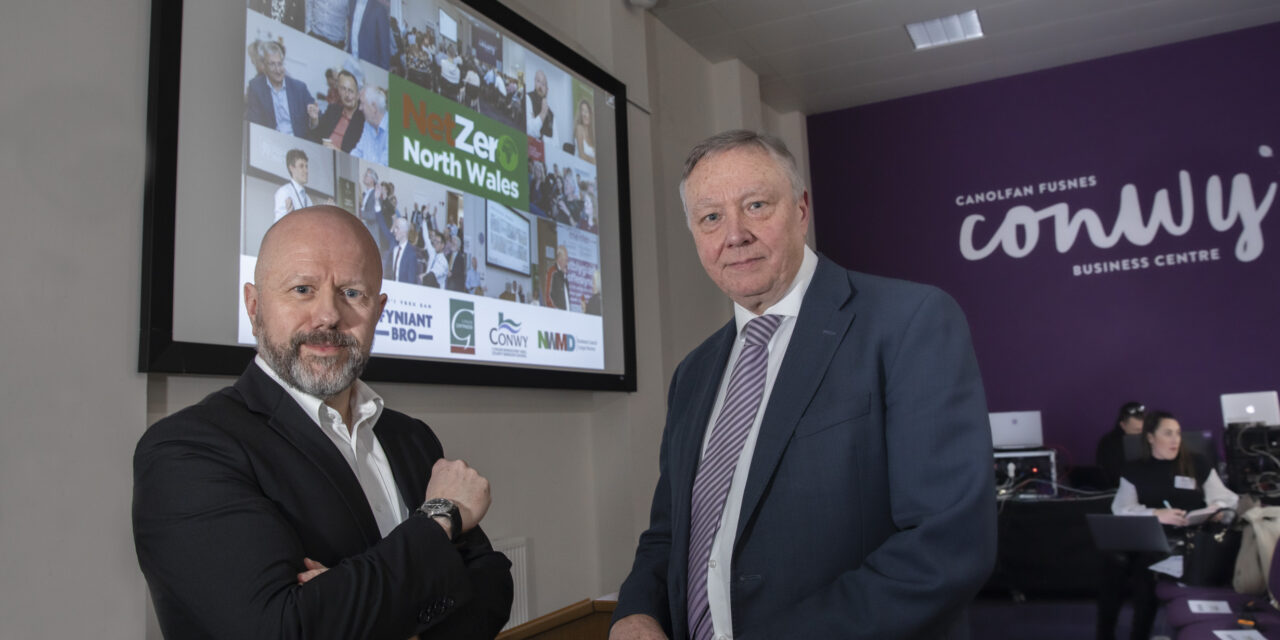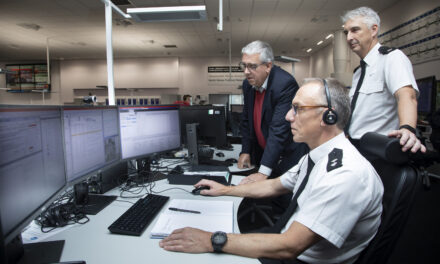A historic seaside hotel has undergone an ambitious green transformation to slash energy costs and reduce its carbon footprint by 84 per cent.
The Grade Two listed Llandudno Bay Hotel on the town’s magnificent Victorian seafront had been closed for over two years when it was taken over by Everbright Hotels, there was no hot water to the top floor and it was facing rocketing energy costs
The utilities bills were forecast to be over £300,000 but two years on its fortunes have been transformed following a major refurbishment by Everbright Hotels which has trimmed the total amount to just over £80,000.
The hotel has also installed EV charging points to encourage visitors to reduce their carbon emissions.
It’s a renewable recipe that is now set to be repeated across the award-winning group’s remaining hotels in North Wales, Rossett Hall, near Wrexham, the Wild Pheasant in Llangollen, and in Llandudno at the Belmont where work has already started and the Queens Hotel which is due to reopen next year.
Everbright Hotels Group Operations Director, Darryl Shaw told a meeting of the Net Zero North Wales Network at Conwy Business Centre: “When we took over the hotel we were being quoted gas and electricity bills of over £300,000 and that would just not have been viable for the hotel to operate.
“The good news is that our green energy initiatives have enabled the hotel to operate more economically and with a substantial reduction in carbon emissions.
The event at the Conwy Business Centre brought together businesses from across North Wales, some of them attending remotely.
The speakers also included Igiri Onaji, Senior Manufacturing Research Engineer for the Advanced Manufacturing Research Centre Cymru in Broughton, Rhodri Owen, Head of Projects at Zip World UK, and Liam Ford-Evans, Executive Director and Chief Executive of Theatr Clwyd in Mold.
Darryl Shaw said: “We wanted to introduce more technology into the equation and this is what we have done over two stages, the first to modernise the existing systems and the second to decarbonise the business.
“In the first stage we have installed new aluminium and copper radiators which enables the hotel to operate its heating system with 650 litres of water compared to 2500 litres of water formally, 75 per cent less, and we are able to operate at a temperature of 50 to 55C compared to the former system at 65 to 75C.
“We have also introduced multi-zone temperature controllers in all the bedrooms and public areas so management can determine the heating in all areas of the hotel, so we aren’t heating rooms that are empty to the same level as those that are in use.”
“Visitors to Llandudno can also now travel with confidence in their electric vehicles and make use of our state of the art charging stations, including a 50Kw DC Fast charger. Helping our guests to reduce their environmental impact whilst supporting provision of EV charging infrastructure for the region”
Everbright Hotels was launched in 2015 and their first hotel was Rossett Hall and they now have four in North Wales and two more in Cumbria and the catalyst for their green transformation has been the Covid pandemic.
He said: “We made the decision to retain all of our staff during the pandemic and because we did so when restrictions were lifted we were able to re-start straight away. The Pandemic also enabled us to take a step back and critically analyse our operations.”
“We started thinking about whether we wanted to carry on as we had or could we come up with new strategies which would make a difference and which would be the right thing to do.”
Stage Two of the programme will see the Llandudno Bay Hotel equipped with solar panels including thermodynamic panels as an alternative to air-source heat pumps with the electricity generated by the panels being stored in batteries to be used at peak times and also to support the electric car chargers.
“The big savings in carbon emissions will really kick in when the green energy generation and storage systems come on stream so that when peak usage occurs, we will have batteries ready to transfer the stored energy back.
“The total cost of the works has been £150,000 and we estimate that we will get payback in two years.
“It’s a treble win because we get the much-needed cost saving, we get a significant decarbonisation of 90 tons annually and we get customers because the market is saying that people are choosing to stay in hotels which are environmentally responsible.
The meeting was organised by Ashley Rogers, the Chief Executive of the North Wales Business Council, which runs the Net Zero North Wales Network.
He said: “I’d like to thank Darryl and the rest of the speakers for their inspirational presentations.
“The aim of the Net Zero North Wales Network is to share best practice that others can also learn from and implement to make their businesses greener.
“What Everbright Hotels is doing is a clear demonstration that reducing your carbon footprint also makes sound business sense and that investing in green technology can improve your bottom line, leading to an improvement in profitability.
The next meeting of the Net Zero North Wales Network will be at Pontio in Bangor, in late February.
The Net Zero North Wales Network has received £126,000 from the UK Government through the UK Shared Prosperity Fund and is supported by Gwynedd Council and Conwy County Borough Council.”










